The Modern Haggadah Passover form represents a nuanced, humanist approach to one of the most significant Jewish celebrations, adapting traditional narratives to accommodate a broader, more inclusive perspective. Crafted meticulously by Eszter Hargittai, with elements drawn from the works of the Washington Congregation for Secular Humanistic Judaism and the City Congregation for Humanistic Judaism in New York City, this version stands as a testament to the evolving nature of cultural and religious practices. Through the incorporation of various sources, it emphasizes communal unity, the enduring spirit of the Jewish people, and the universal struggle for freedom and dignity. The invocation encourages participants to recognize the beauty of spring, the value of community, and the importance of reflecting on both personal and collective histories of liberation. As it progresses, the form incorporates traditional elements such as the candlelighting and Kiddush over wine, reinterpreted to underline humanistic values and the perpetual relevance of growth, inner enlightenment, and peace. By recounting the story of Passover with an emphasis on life's triumph over adversities, the Haggadah fosters a sense of resilience and optimism. This version does not merely retell an ancient story but invites participants to live in unity, appreciate the continuous cycle of renewal, and acknowledge the light and goodness in the world, making it a profound tool for reflection and celebration during the Passover season.
| Question | Answer |
|---|---|
| Form Name | Modern Haggadah Passover Form |
| Form Length | 27 pages |
| Fillable? | No |
| Fillable fields | 0 |
| Avg. time to fill out | 6 min 45 sec |
| Other names | human haggadah download, version haggadah printable, version haggadah download, version passover printable |
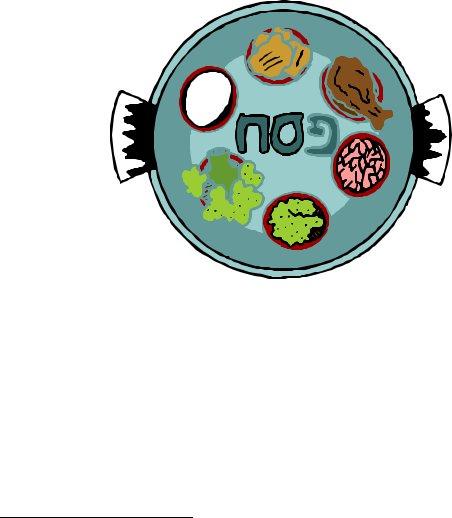
A Humanist Modern Version Haggadah For Passover*
*Adapted from various sources by Eszter Hargittai using A Humanist Haggadah for Passover of (http://www.machar.org/passover.html) Machar, The Washington Congregation for Secular Humanistic Judaism and Passover Haggadah for a
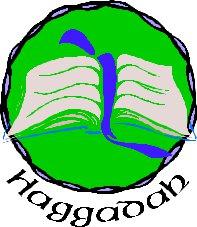
Invitation
Reader 1: We have come together this evening for many reasons. We are here because Spring is all around, the Earth is reborn, and it is a good time to celebrate with family and friends. We are here because we are Jews and friends of Jews. We are here to honor the Jewish nation’s deep historic roots and its old important memories.
Group: We are here to remember the old story of the liberation of the ancient Hebrews from slavery in Egypt – a great struggle for freedom and dignity. We are here because the struggle for human freedom never stops. We are here to remember all people – Jews and
Reader 2: Let us sing:
Group sings:
Reader 2: Behold, how good and pleasant it is for brothers and sisters to live together in unity! [Translation of song].
2
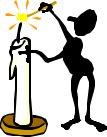
Reader 3: It is said, there is nothing new under the sun, yet nothing remains the same. Against the backdrop of eternity the earth displays an
Reader 4: Slowly, one season emerges from another. The harshness of ice and snow yields to gentle, nourishing showers. Inevitably, the cold, dark days succumb to the warmth and light of Spring. We rejoice in the warm light and rich blessings of this season.
Group: The celebration of Passover represents the perennial rebirth and survival of the Jewish people and the world of nature. The light of these candles symbolizes a renewal of life, a reaffirmation of freedom.
Reader 1: Lights candles
Let us sing the Song of Light:
Group:
Reader 1: Precious is the light of the world, of humankind, of Passover.
Precious is the goodness of the world, of humankind, of Passover. [Translation of song]
3
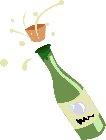
Reader 1: Let us all fill our glasses with wine...
Spring is the season of new growth and new life. Every living thing must either grow, or die; growth is a sign and a condition of life.
Reader 5: Like no other creature, the most significant growth for a human being takes place inwardly. We grow as we achieve new insights, new knowledge, new goals.
Let us raise our cups to signify our gratitude for life, and for the joy of knowing inner growth, which gives human life its meaning. And with raised cups, together let us say:
Group:
We are awed by all life in the world.
How beautiful is the life of humankind.
Reader 1: Let us all now drink the first cup of wine.
Group sings: Heyveynu shalom aleichem (3 times) Heyveynu shalom, shalom, shalom aleichem!
Reader 4: Peace to everyone. [Translation]
4
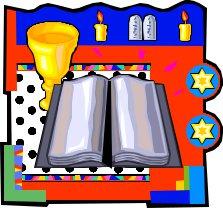
The Story of Passover
Reader 3: Passover is the celebration of Life. The story of the Jewish people is truly a triumph of life. Against the odds of history, the Jewish people have done more than survive – the Jewish people [we] have adapted creatively to each new time, each new place, from the birth of their [our] ancient nation to the present day. Even though death has pursued them [us] relentlessly, time and time again, they [we] have chosen to live.
Reader 4: During the many centuries of the Jewish experience, memories of destruction are tempered by the knowledge that the world can also be good. Jews [We] have endured slavery and humiliation. Jews [We] have also enjoyed freedom and power. Darkness has been balanced by light.
The Jews’ [Our] forebears traveled the Earth in search of the safety and liberty they knew must exist.
Group:
We have learned to endure.
We have learned to progress.
We are proud survivors.
5

The youngest person present::
ARBA
MA
Why is this night different from all other nights?
1.
On all other nights we eat either bread or matsah. Why, on this night, do we eat only matsah?
2.
On all other nights we eat herbs of any kind. Why, on this night, do we eat only bitter herbs?
3.
On all other nights, we do not dip our herbs even once. Why, on this night, do we dip them twice?
4.
On all other nights, we eat either sitting or leaning. Why, on this night, do we eat while leaning?
6
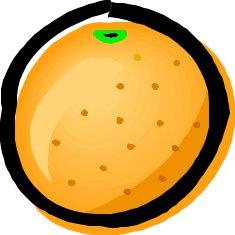
5. The plus one question:
The original Passover did not include an orange on the Seder plate. Why, on this night, do we have an orange on the Seder plate?
7

MAGGID STORY
Reader 1: These are important questions. But before we answer them, let us listen to a story of Jewish hope. The tale of the Jews’ [our people's] first quest for freedom from slavery in Egypt was written so long ago that no one knows how much of it is fact and how much is fiction. Like all good stories, however, the lessons it teaches are valid and important.
Reader 2: It is written that long ago, during a time of famine, the ancient Israelites traveled to Egypt. According to this legend, the Israelites at that time were all in a single family – Jacob and his children. One of Jacob's sons was Joseph, whose wisdom caused the Pharaoh – the ruler of Egypt – to make him a leader over all the people of Egypt.
Reader 3: But as time passed, another Pharaoh became the ruler of Egypt. He did not remember about Joseph and his wise leadership. This new Pharaoh turned the Israelites into slaves, and burdened them with heavy work and sorrow.
Reader 4: After the Israelites were in Egypt for over 400 years, a man arose among them. He demanded that Pharaoh let his people go! Many times he risked his life to insist on the freedom of his people, until he finally succeeded.
Reader 5: At our Passover Seder, we celebrate the story of Moses and the people he led out of slavery 3000 years ago. We celebrate the struggle of all people to be free. Throughout the centuries, the story of Moses and the exodus from Egypt has inspired Jews and
8
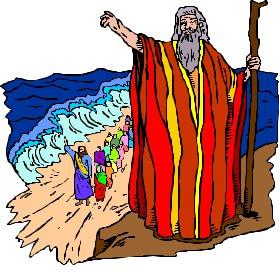
Group: Let us remember that the thirst for freedom exists in all people. Many centuries after the time of Moses, African people were brought to America as slaves. These slaves longed for freedom, and they were inspired by the story of Moses and the ancient Israelites. When the Black slaves in America sang "Go Down Moses," they were thinking of their own leaders who were working to end slavery. Let us sing that beautiful song.
GO DOWN MOSES:
When Israel was in Egypt land,
Let my people go!
Oppressed so hard they could not stand,
Let my people go!
CHORUS:
Go down Moses,
Way down in Egypt land,
Tell old Pharaoh
To let my people go.
When Moses took them from their toil,
Let my people go!
He led them all to freedom's soil
Let my people go!
CHORUS
9
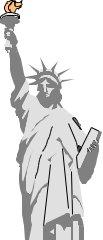
Group: The freedom we celebrate tonight is not only freedom from slavery. It is also the freedom to live in peace, with dignity and with hope for a bright future. This constant vision has inspired the Jewish people since the ancient times recorded in the Bible.
Reader 1: For many centuries, most Jews lived in Europe, where they were often persecuted. They were driven from place to place, and their lives were often filled with terror and despair.
Reader 2: There came a time when many Jewish families heard of a place called America, where they could live without fear. This was the promise that America held out to them and to many other suffering people.
Group: By the thousands, and then by the millions, year after year they crossed a large ocean, enduring the dangers of that long voyage before reaching the shores of America.
Reader 3: Even then for a time they suffered from poverty and homelessness, but because of their perseverance, courage, and skills, they [we] are here tonight celebrating this festival of freedom in a free land.
Reader 4: This evening, as we celebrate this [our own] freedom let us take notice of the struggles toward freedom in many other parts of the world. Let us celebrate all these struggles with our freedom song,
Group sings:
10
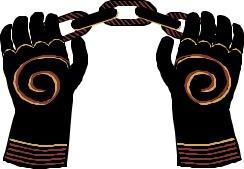
Reader 5:
Freedom for Israel. Freedom for humankind. Freedom for the whole world. [Translation of song].
11
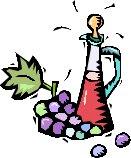
SPILLING THE WINE
Reader 1: Let us all fill our cups with wine...
Tonight we drink four cups of the fruit of the vine. There are many explanations for this custom. They represent, some have said, the four corners of the earth, for freedom must live everywhere; the four seasons of the year, for freedom's cycle must last through all the seasons; or the four matriarchs: Sarah, Rebecca, Leah, and Rachel.
Reader 2: A full cup of wine symbolizes complete happiness. The triumph of Passover is diminished by the sacrifice of many human lives when ten plagues were visited upon the people of Egypt. In the ancient story, the plagues that befell the Egyptians resulted from the decisions of tyrants, but the greatest suffering occurred among those who had no choice but to follow. It is fitting that we mourn their loss of life, and express our sorrow over their suffering. For as Jews and as Humanists we cannot take joy in the suffering of others. Therefore, let us diminish the wine in our cups as we recall the ten plagues that befell the Egyptian people.
As each plague is named, everyone dips a finger in wine and then touches a plate to remove the drop.
Group:
Dahm Blood,
Locusts,
Firstborn.
12
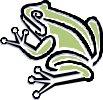
Reader 3: In the same spirit, our celebration today is also shadowed by our awareness of continuing sorrow and oppression in all parts of the world. Ancient plagues are mirrored in modern tragedies.
Reader 4: The fate of every Jew is bound up with the fate of the Jewish people. And the destiny of the Jewish people cannot be separated from the destiny of all humanity. We cannot be fully Jewish unless we recognize that we are also fully human.
Reader 5: Because Pharaoh prevented our ancestors from leaving Egypt freely he plagued his land with his obstinate, heavy heart. We do not rejoice, however, over his downfall and defeat. We cannot be glad when any person needlessly suffers, even our enemies who would seek to destroy us. Even as we celebrate our victory in the Exodus, we mourn the loss of the Egyptians and express sorrow over their destruction.
Reader 2: We are a world people, living in many lands and among many nations. The power of science has shrunk our planet and has made all of us the children of one human family. We are all victims together of enormous social problems. We share in their effects and in the responsibility to overcome them.
Reader 1: We spill wine from our cups at the mention of each of these contemporary plagues. We cannot allow ourselves to drink a full measure since our own lives are sobered by these ills, which darken our lives and diminish our joy. As the pain of others diminishes our joys, let us once more diminish the wine of our festival as we repeat the names of these modern plagues:
13
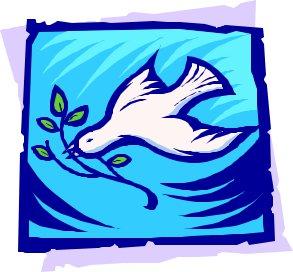
Group:
Hunger, War, Crime,
Disease, Racism, Abuse,
Poverty, Homophobia, Pollution,
Indifference to human suffering.
Reader 5: Let us sing a song expressing our hope for a better world, Y'HEE SHALOM.
Group sings:
Reader 5: May there be peace, kindness, happiness, and compassion. [Translation of song]
14
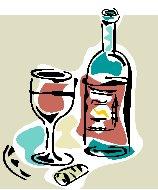
SECOND CUP OF WINE
THE STRUGGLE FOR HUMAN FREEDOM
Reader 1: The second cup of wine is dedicated not only to the struggles of the Jewish people, but to all people seeking a secure life free of fear and persecution. In particular, may the Israelis and the Palestinians come to enjoy freedom and peace. For, as the prophet Isaiah said:
Group: They shall beat their swords into plowshares and their spears into pruning hooks. Nation shall not take up sword against nation, they shall never again know war. But they shall sit every one under their vines and fig trees, and none shall make them afraid.
Reader 1: Let us all hold up our glasses of wine.
Group:
We are awed by all life in the world.
How beautiful is the life of humankind.
Reader 1: Now let us all drink our second cup of wine.
Group sings:
STRANGEST DREAM
Last night I had the strangest dream
I'd never dreamed before;
I dreamed the world had all agreed
To put an end to war.
15

I dreamed there was a room all filled With women and with men,
And the paper they were signing said They'd never fight again.
And when the paper was all signed And a million copies made,
They all joined hands and bowed their heads And grateful words were said.
And the people in the streets below Were dancing round and round. And swords and guns and uniforms Were scattered on the ground.
Last night I had the strangest dream I'd never dreamed before;
I dreamed the world had all agreed To put an end to war.
16
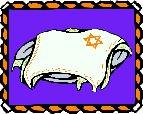
Reader 1: And now it is time to answer those four questions about what makes this night different from all other nights.
Reader 1:
Group: Matsah is the symbol of our affliction and our freedom.
Reader 2: Legend has it that when Moses and his followers fled Egypt, they moved so quickly that the bread they baked did not have time to rise.
Reader 3: However, scholars have noted that long before the Jews celebrated Passover, farmers of the Middle East celebrated Khag
Reader 4: The old fermented dough was thrown out so that last year's grain would not be mixed with this year's. Therefore, the new season began with the eating of unleavened
Reader 5: Let us now sing the song about the bread made from the
grain that grows out of the earth:
Group sings:
17

Reader 5: We celebrate the bread of health and goodness We celebrate the products of the earth.
[Translation of song]
Let us all now eat a piece of matsah.
Reader 1:
Group: Tradition says that this root is to remind us of the time of our slavery. We force ourselves to taste pain so that we may more readily value pleasure.
Reader 2: Scholars inform us that bitter herbs were eaten at the Spring festival in ancient times. The sharpness of the taste awakened the senses and made the people feel at one with nature's revival. Thus, maror is the stimulus of life, reminding us that struggle is better than the complacent acceptance of injustice.
Let us all now take bitter herb and eat it.
SONG: BEE M'KOM
Bee m'kom she'ayn
Bee m'kom she'ayn
Reader 1:
Where people are less than human, Strive to be human.
[Translation of song]
18

Dipping of the Greens in Salt Water
Reader 3: Salt
Group: The first time, the salty taste reminds us of the tears we cried when we were slaves. The second time, the salt water and the green help us to remember the ocean and green plants and the Earth, from which we get air and water and food that enable us to live.
All dip parsley into salt water two times and eat it.
Leaning
Reader 4:
Group: This question goes back to ancient times in Rome, when it was the custom for rich people to eat while lying on a couch leaning on one elbow as slaves and servants fed them. The Jewish people thought of this relaxed type of eating as a sign of freedom and prosperity, so they would lean to one side eating at the Seder on Passover, the festival of freedom. Today, we who are free eat while sitting up, even at Passover, but the question remains in the service as a reminder of how it was when our people longed for freedom.
More Questions
Reader 1: We have answered the four traditional questions, but there are still more questions to be answered. There are other special foods on our Seder plate: a sweet condiment (kharoset), a roast lamb's bone
19
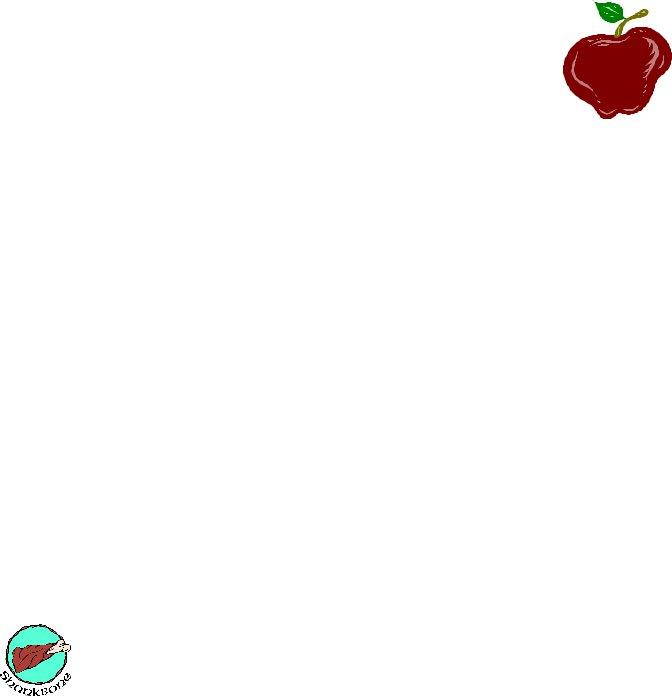
Reader 1:
Group: Apples, nuts, cinnamon, and wine are combined to make this sweet condiment. It is the color of clay or mortar. It reminds us of the bricks and mortar that the Israelites are said to have made when they built the Pharaohs' palaces and cities. At the same time, the taste of kharoset is sweet, and it reminds us of the sweetness of freedom.
Reader 2: Let us now all eat kharoset on a piece of matsah.
Reader 3: There is an interesting tradition to take a piece of matsah and place upon it some bitter herb (maror) and some kharoset. As you eat this, the full meaning of Passover is felt through this combination.
Reader 1: Holding up roasted lamb bone for all to see.
Z'roa means shankbone or thigh bone. This lamb's bone takes us back, once again, to ancient times to the shepherd's festival of Pesakh. It was celebrated at the time of the full moon in the month the lambs and goats were born. At that time, each family would slaughter a young lamb or goat for a Spring feast.
Reader 4:
20
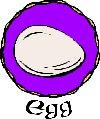
Group: Baytsah is the egg of life. Each of us begins as an egg and grows to adulthood. The egg reminds us of our evolutionary past and the gifts of human inheritance. But the egg is fragile. It represents potential that can be destroyed. Left alone, its life would perish.
Reader 4: Growing life needs warmth and love and security, guidance, hope, and vision. To achieve their full potential, human beings need the support and encouragement of family and community. Baytsah symbolizes the fragility and interdependence of life.
Orange
Reader 5: Orange – why is there an orange on the Seder plate when that was not part of any traditional Passover celebrations?
Reader 1: The orange on the Seder plate is the result of an experience Professor Susannah Heschel had in the early 1980s. In her own words:
In the early 1980s, the Hillel Foundation invited me to speak on a panel at Oberlin College. While on campus, I came across a Haggada that had been written by some Oberlin students to express feminist concerns. One ritual they devised was placing a crust of bread on the Seder plate, as a sign of solidarity with Jewish lesbians ("there's as much room for a lesbian in Judaism as there is for a crust of break on the Seder plate").
At the next Passover, I placed an orange on our family's Seder plate. During the first part of the Seder, I asked everyone to take a segment of the orange, make the blessing over fruit, and eat it as a gesture of solidarity with Jewish lesbians and gay men, and others who are marginalized within the Jewish community (I mentioned widows in particular).
Bread on the Seder plate brings an end to Pesach - it renders everything chometz. And its symbolism suggests that being lesbian is being transgressive, violating Judaism. I felt that an orange was suggestive of something else: the fruitfulness for all Jews when lesbians and gay men are contributing and active members of Jewish life. In addition, each orange segment had a
21
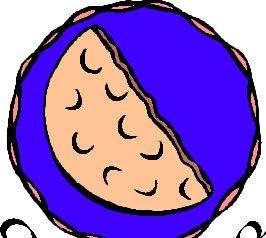
few seeds that had to be spit out - a gesture of spitting out, repudiating the homophobia that poisons too many Jews.
When lecturing, I often mentioned my custom as one of many new feminist rituals that had been developed in the last twenty years. Somehow, though, the typical patriarchal maneuver occurred: My idea of an orange and my intention of affirming lesbians and gay men were transformed. Now the story circulates that a MAN stood up after I lecture I delivered and said to me, in anger, that a woman belongs on the bimah as much as an orange on the Seder plate. My idea, a woman's words, are attributed to a man, and the affirmation of lesbians and gay men is simply erased. Isn't that precisely what's happened over the centuries to women's ideas?
Reader 5: We have drunk the wine and tasted the special foods of the Passover celebration. They symbolize our attachment to the traditions of our culture, to freedom, and to life itself. Before we enjoy our feast, let us set aside the first of these symbols, the Matsah, to be the final food of this Passover supper, reminding us of why we are gathered here and what it is we celebrate.
Reader 1: I am breaking this piece of matsah into two pieces. One half I return to the table, the other half I will wrap in a napkin and save until the end of the meal. This piece is called the AFIKOMEN. Without it the Seder cannot end, so I must make sure that it doesn't get lost.
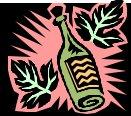
Reader 2: Let us all now fill our glasses with wine.
During this festival of life, it is important for us to remember our lost sisters and
Group: We resolve that their memory shall not be lost. We accept the responsibility of working to prevent such suffering from ever again occurring on this earth.
Reader 2: We remember the heroism of those who fought against fascism and tyranny in the forests and the cities of Europe. Men, women, and children who loved freedom and humanity, struggled with their own hands against the powerful armies of those who sought to oppress and kill them.
Group: We remember the Warsaw ghetto on the dawn of the first day of Passover, April 19, 1943. The Nazis were coming to complete the deportation of the remaining Jews to the death camps. A shot rang out on Nalevki Street, signaling the beginning of the revolt. A few hundred Jews with a few guns and hand grenades had decided to resist the tremendous power of the German army and the Gestapo. The courageous men and women of the Jewish Fighting Organization held out for
Reader 3: Although few of the Jewish fighters survived the battle, the story of their courage will never die. Similar acts of resistance took place in Minsk, Vilna, Bialystock, in the cities and towns of
23
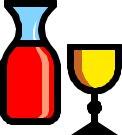
Poland, and even in the death
Group: Jews [We] were slaves in Egypt and Jews [we] were slaves in fascist Europe. We have much to remember.
Reader 5: We drink the third cup of wine to those who were taken from us and to those who fought for freedom and life.
All drink third cup of wine.
Reader 1: Just as the food of our Passover supper has nourished our bodies, so the experience of the human spirit gives meaning to our lives. As a full expression of the hope and joy of this combination, let us sing the Passover song
Group sings:
Eeem yash
If we only had our freedom.
If we only had our Seder.
If we only had our hope.
[Translation of
24
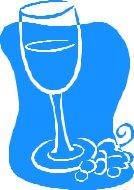
The Fourth Cup of Wine
The Cup of Elijah, The Cup of Hope
Reader 1: Let us all fill our wine glasses.
Reader 1 picks up Elijah's cup for all to see.
This is the cup of Elijah. According to Jewish tradition, the Prophet Elijah was a brave man who denounced the slavery of his day. Legend teaches that he will return one day to lead everyone to peace and freedom.
It was customary during the Passover Seder to open the door of the house for Elijah, in the hope that the age of universal peace may soon be at hand.
Group: We, too, open the door to peace, knowing that Elijah's task is really our own. Only when we have made a world where nation shall not lift up sword against nation, where justice is universal, and where each person is free, will the
Let us bring peace and justice to the world!
Reader 1: Let us now open the door.
We will now raise our glasses and sing a song of Peace symbolized by the cup of Elijah:
Group sings:
V'al kol
25

Reader 2:
We shall make peace in the world We shall make peace for ourselves And peace for all the world. [Translation of song]
Reader 1: Now it is time for our leisurely Pesakh meal.
After Supper
Reader 1: Jewish history shows that life is
Reader 5: This is the lesson of Passover. This is why we celebrate the Festival of Freedom.
Reader 1: Let us now conclude our celebration of Life, of Freedom,
and of Peace by standing to sing our song of hope: HATIKVAH.
26
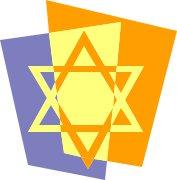
Kohl od
Od lo
Thank you for participating!
27